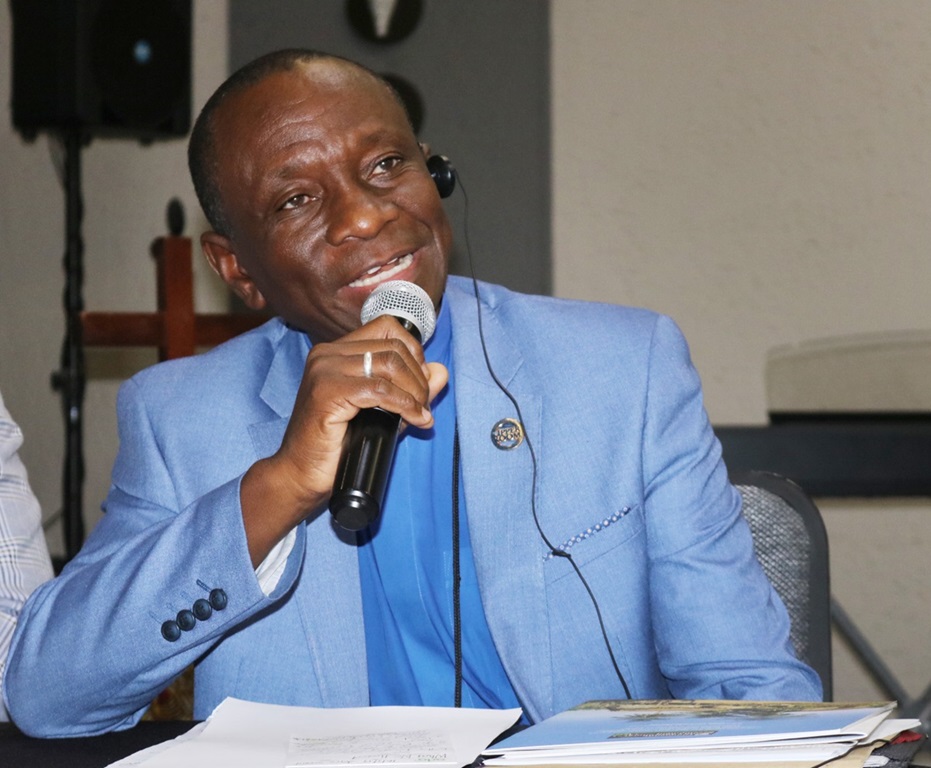Dateline: Johannesburg (UMNS)
About 80 people concerned with the future of agriculture in The United Methodist Church on the African continent gathered to map out how to build sustainability, improve the current state in their episcopal areas and learn from each other.
The summit organized by the United Methodist Board of Global Ministries and United Methodist Committee drew together missionaries and people involved in administration and agriculture to discuss how they could make better use of the land.
Thomas Kemper, top executive for the mission agency, said the Jan. 13-16 summit was a “think tank” in response to the challenge by the Africa College of Bishops president, Bishop John K. Yambasu, for the church to develop agriculture. In May 2018, the Africa Extended Cabinet expressed the desire to embark on a new or, in some cases, renewed effort toward productive use of church lands.
“The summit aimed at exploring how we can make agriculture commercial, profitable and environment friendly. We succeeded in our goal as everyone learned something. People were talking across conferences, connecting … intense conversations took place here,” Kemper said.
“All discussions had a biblical base, so we could show how agriculture fits into our faith,” he said. “From the summit, we are considering starting two pilot projects on land owned by the church. We believe the regional networking will continue in the episcopal areas.”
The Rev. Jack Amick, director of sustainable development and global migration for UMCOR, described the state of agriculture in Africa as “a lot of different people trying a lot of different things.”
“Agriculture in Africa is not the purview of The United Methodist Church alone. It is challenging and markets are difficult to find. There are also other issues such as conflict and displacement of people,” he said.
“We were creating a space for the Holy Spirit to work and wonderful things can happen” Amick said. “The United Methodist Church has connecting power — the ability to gather people and converse on how to work together.”
The Rev. Alan Masimba Gurupira, Zimbabwe Episcopal Area, said the church was setting higher targets for full-scale use of the existing land. “The commercial use of the mission farms will make The United Methodist Church in Zimbabwe a key contributor to the national food reserves and economy,” he said.
Bishop Gaspar J. Domingos of West Angola said he was grateful for the summit because bishops could see various signs of sustainability connected to the continent. “Africa is the cradle of mankind. We have the highest rates of fertility and mortality. We have lots of water and land, but we are the least developed,” he said.
“It is feasible to have agricultural development with respect and concern for the environment. Our responsibility is to lead a plan of development ensuring proper use of resources.”
Nyamah Dunbar, Global Ministries area liaison for East and West Africa, said the diverse range of expertise at the summit was exciting. “I am happy that there is some level of activity in each annual conference on the continent,” she said.
The church could begin work right now on idle land, said Mozart Adevu, an agriculture missionary serving in Ghana. “We can plant trees to be harvested 10 to 15 years from now. Agro-forestry does not require much capital.”
Delegates had the opportunity to interact with representatives from successful farming ventures such as the Songhaï Centre in Benin, Nuru (Kenya), an organization that trains agriculture cooperatives. Ken Cruz, who serves with the Community Health and Agriculture Development program in Cambodia, also was present.
Participants discussed environmental stewardship and the engagement of women and youth in commercial agriculture. Members of the Methodist Church of Southern Africa also took part in the summit.
Global Ministries and UMCOR are already at work through numerous missionaries, funding for nationals in mission and grants supporting agricultural initiatives on the African continent.
Chikwanah is a communicator of the Zimbabwe East Conference. Originally published by United Methodist News Service, Jan. 25, 2019.

